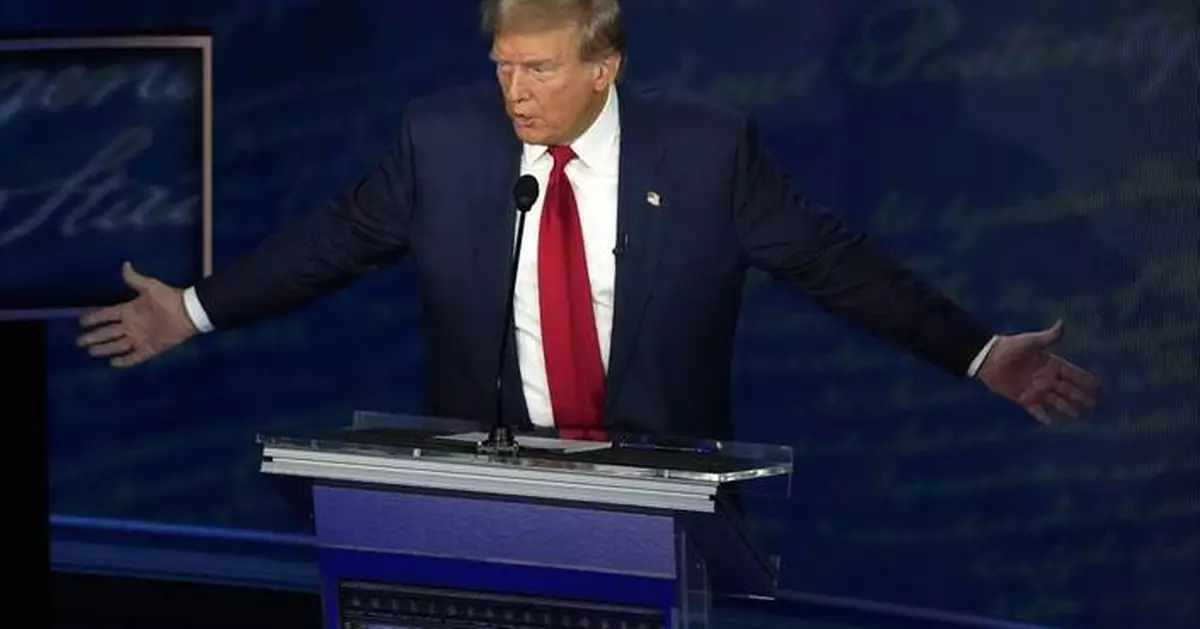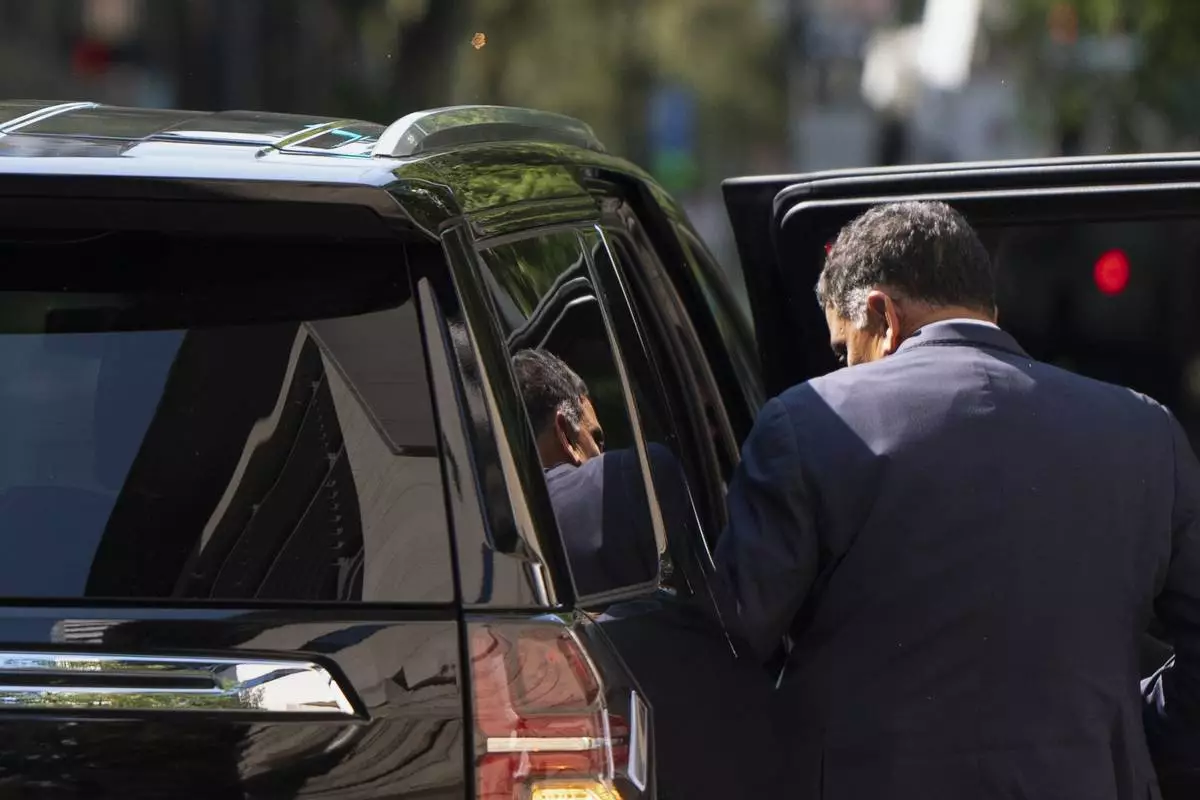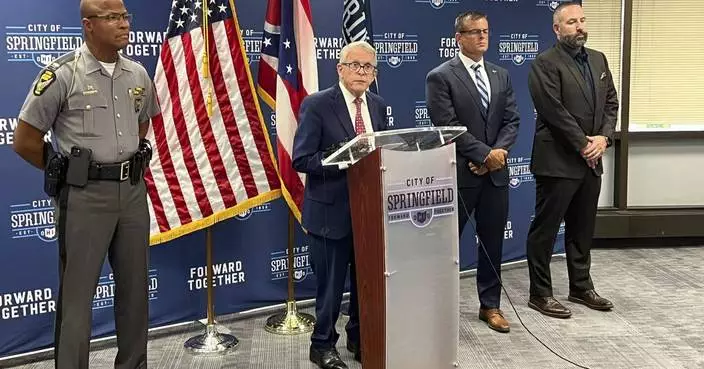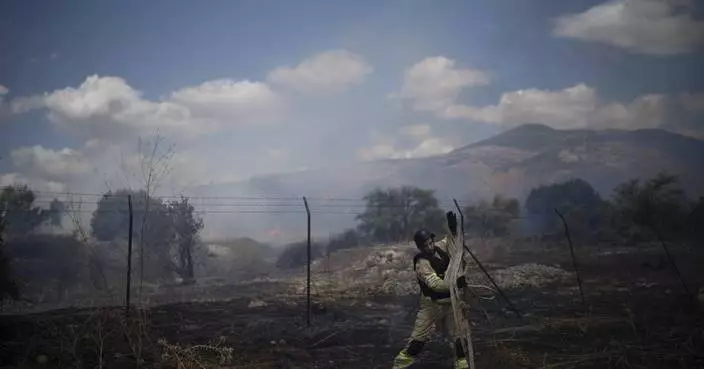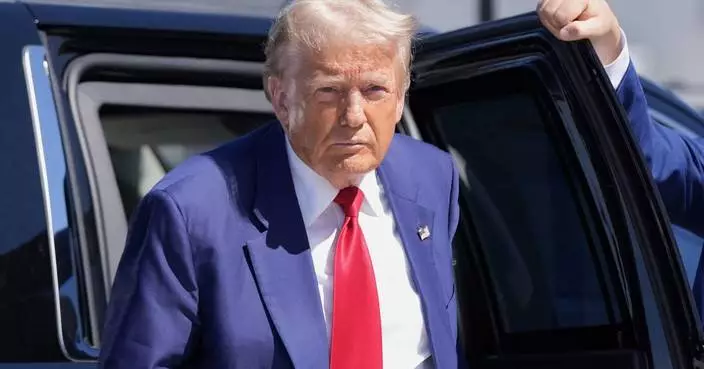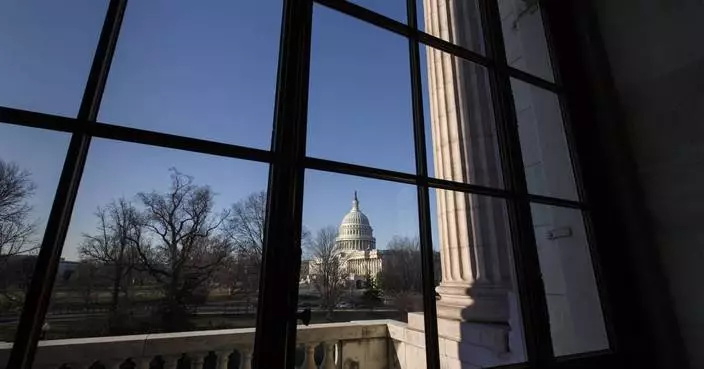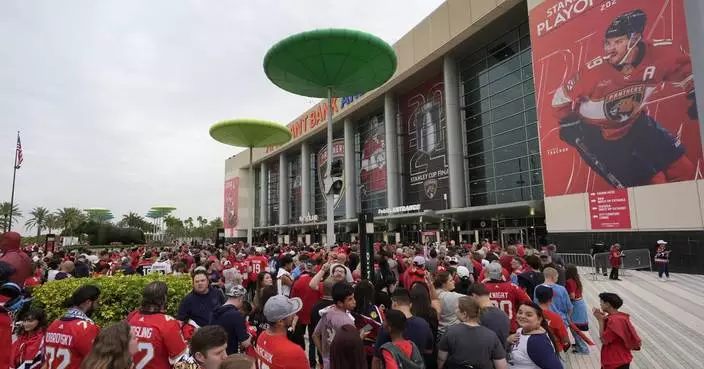CHICAGO (AP) — Former President Donald Trump repeatedly declined to say during this week's debate if he would veto a national abortion ban if he were elected again — a question that has lingered as the Republican nominee has shifted his stances on the crucial election issue.
In Tuesday's debate with Vice President Kamala Harris, Trump said he would not sign a federal abortion ban, insisting that a ban would not pass Congress anyway. But he refused twice to say if he would veto such legislation if it landed on his desk. Trump's running mate, Sen. JD Vance, a Republican from Ohio, said in an interview with NBC News last month that the former president would veto a ban.
In response to moderators prompting him about Vance's statement, Trump said: “I didn't discuss it with JD, in all fairness. And I don't mind if he has a certain view, but I don't think he was speaking for me.”
The exchange comes as voters and advocates across the spectrum wait for Trump to clarify his fluctuating stances on abortion, and Democrats warn that reproductive rights nationwide may be threatened by a second Trump presidency. Meanwhile, Harris emphasized support for reinstating a federal right to abortion Tuesday night.
“He was given an opportunity to give clarity to the American people. He could not do it," said Mini Timmaraju, president of the national abortion rights group Reproductive Freedom for All. "He will not answer that question directly.”
During the debate, Trump repeatedly took credit for appointing the three Supreme Court justices who helped overturn the constitutional right to abortion and leaned heavily on his catchall response to questions on abortion rights: saying the issue should be left up to the states.
“I'm not signing a ban,” he said, adding that “there is no reason to sign the ban” because of the overturning of Roe v. Wade, which once granted a federal right to abortion.
He repeated that he is “not in favor of an abortion ban, but it doesn’t matter, because this issue has now been taken over by the states.”
“This entire campaign cycle we’ve been telling voters they can’t trust Donald Trump when it comes to their reproductive freedom,” said Jenny Lawson, executive director at Planned Parenthood Votes. "And he just proved that right last night.”
Following the debate, Carol Tobias, president of the National Right to Life Committee, said she wasn’t surprised Trump didn’t say he would support a national abortion ban because he has said in the past that there should not be one.
She said her group hasn’t been focusing on a national ban “because it’s not going to happen. The votes aren’t there in Congress. You know, President Trump said he wouldn’t sign it. We know Kamala Harris won’t.”
Kristan Hawkins, president of Students for Life of America, said the anti-abortion movement largely disagrees with Trump that abortion should be left up to the states, and in an April open letter to Trump, Students for Life of America urged him to commit to signing legislation restricting abortion. But Hawkins said, “That’s a conversation that will be had in detail after the election.”
Trump's states-based narrative is among his attempts to appear more moderate on abortion rights, which remain broadly popular and have emerged as among the GOP's greatest vulnerabilities heading into November.
Timmaraju said she believes Trump is only voicing opposition to a national ban now due to political pressure and a desire to win votes in November.
“Trusting him to be moderate in his position while in office is out of touch with reality,” she said.
Around 6 in 10 Americans think their state should generally allow a person to obtain a legal abortion if they don’t want to be pregnant for any reason, according to a July poll from The Associated Press-NORC Center for Public Affairs Research. Voters in seven states, including conservative ones such as Kentucky, Montana and Ohio, have either protected abortion rights or defeated attempts to restrict them in statewide votes over the past two years.
Trump’s shifting abortion policy stances began when the former reality TV star and developer, who had once called himself “very pro-choice” started flirting with running for office.
Before becoming president, Trump has said he “would indeed support a ban” in his book “The America We Deserve,” which was published in 2000. In 2016, he said he was “pro-life with exceptions” but said “there has to be some form of punishment” for women seeking abortions — a position he quickly reversed. At the 2018 annual March for Life, Trump voiced support for a federal ban on abortion on or after 20 weeks of pregnancy.
More recently, Trump suggested in March that he might support a national ban on abortions around 15 weeks before announcing that he instead would leave it to the states.
In an April interview with Time magazine, Trump also said it should be left to the states whether to prosecute women for abortions or whether to monitor women’s pregnancies and declined to comment on access to the abortion pill mifepristone, which was embroiled in an intense legal battle. When asked about mifepristone, he claimed only that he has “pretty strong views” on the matter and vowed to make a statement that has never come.
In May, he said he was open to regulations on contraception before backing away from the statement, claiming his comments were misinterpreted.
Trump also has appeared to reverse course on Florida's six-week abortion ban, which he has previously called a “mistake” and too extreme. Last month, he ultimately said he would vote against a state ballot measure attempting to repeal the law and enshrine abortion rights into the state constitution, a day after he seemed to indicate he would vote in favor of the measure. He told reporters the initiative is from “radical” Democrats and falsely claimed it would allow abortions up until birth.
Laura Ungar in Louisville, Ky. contributed to this report.
The Associated Press receives support from several private foundations to enhance its explanatory coverage of elections and democracy. See more about AP’s democracy initiative here. The AP is solely responsible for all content.
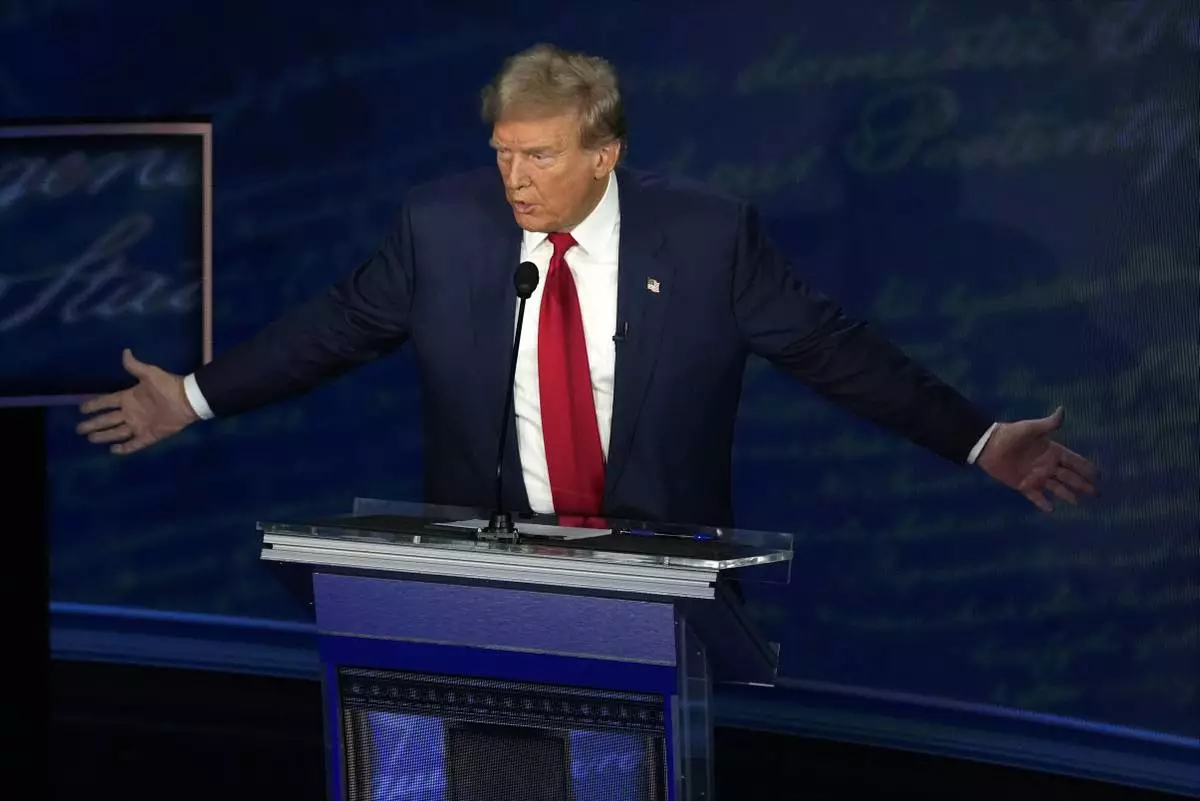
Republican presidential nominee former President Donald Trump speaks during a presidential debate with Democratic presidential nominee Vice President Kamala Harris at the National Constitution Center, Tuesday, Sept.10, 2024, in Philadelphia. (AP Photo/Alex Brandon)


